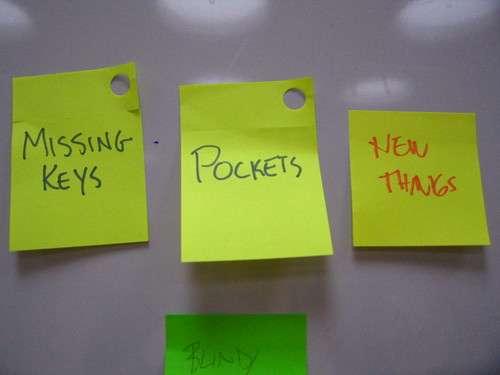I hadn’t planned on writing here about my experience at the Jamey Aebersold Jazz Camp held at the University of Louisville in Kentucky in the second week of July, but it’s so easy to summarize the key lessons I learned about soloing that I thought I’d jot them down after all:
If we replaced Facebook with a decentralized collection of cooperating services that provide a similar collection of features, obvious candidates for some of these services are FOAF files, twitter, and flickr, but what would coordinate those services? Some have APIs and can store information that lets you make connections between the different services, so I wrote something to make one of those connections.
Facebook’s OpenGraph, Google’s Rich Snippets, BestBuy’s use of the GoodRelations vocabulary and other recent events are boosting RDFa’s popularity for storing machine-readable data in web pages. There are several tools and programming libraries available (not to mention built-in features of development platforms such as TopQuadrant’s TopBraid Suite for application development) that let you extract the RDF triples from this RDFa markup and use it, but I recently…
OK, it’s a rhetorical question. I know the answer: we can attach metadata to class and property declarations, so when we know that a given instance is a member of a particular class and has certain properties, if those are declared, we know more about the instance and can do more with it, not least of all aggregate it more easily with other data that uses the same or related classes and properties.
Christian Fürber and Martin Hepp (the latter being the source of the increasingly popular GoodRelations ontology) have published a paper titled “Using SPARQL and SPIN for Data Quality Management on the Semantic Web” (pdf) for the 2010 Business Informations Systems conference in Berlin. TopQuadrant’s Holger Knublach designed SPIN, or the SPARQL Inferencing Notation, as a SPARQL-based way to express constraints and inferencing rules on sets of triples, and Fürber and Hepp have…



